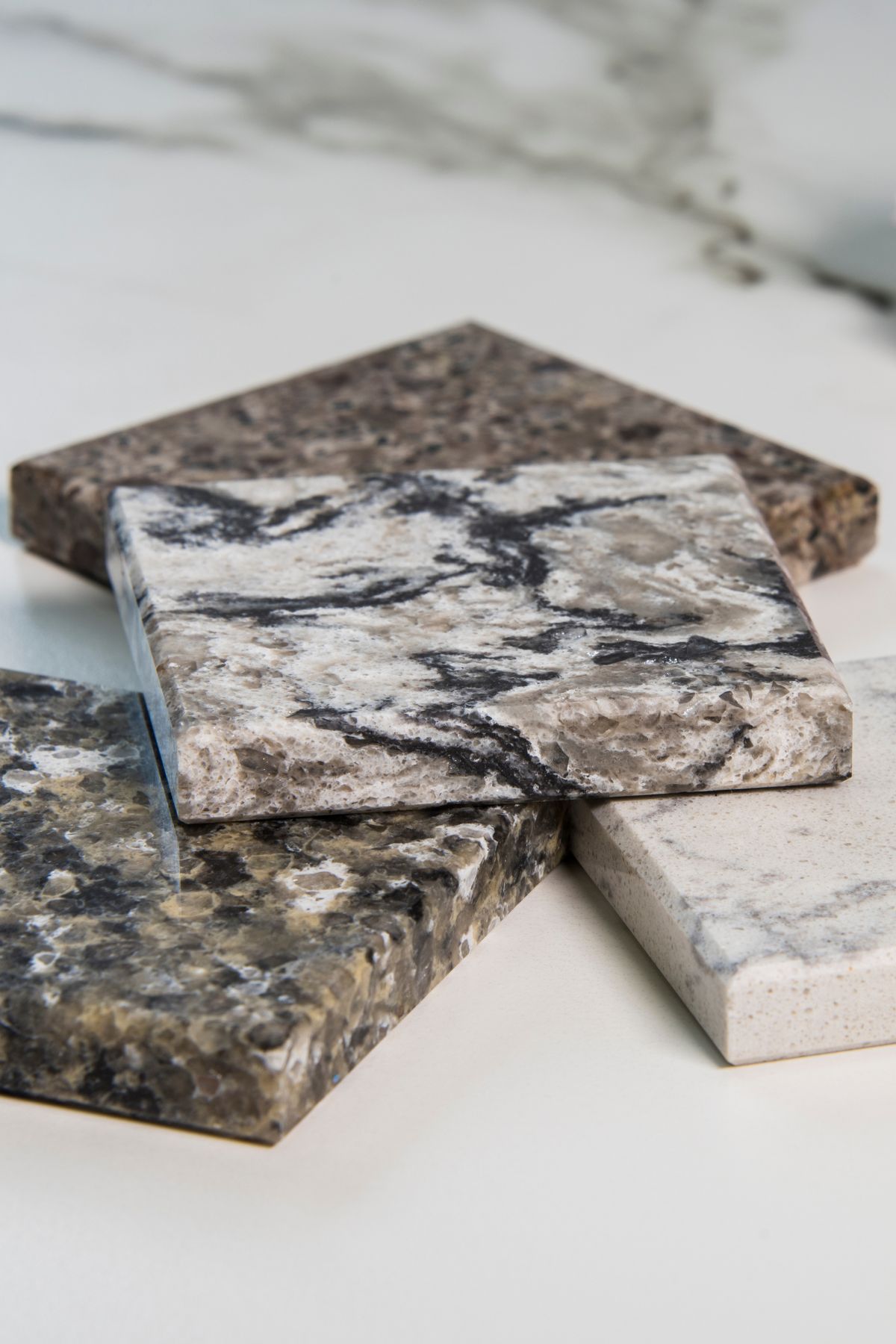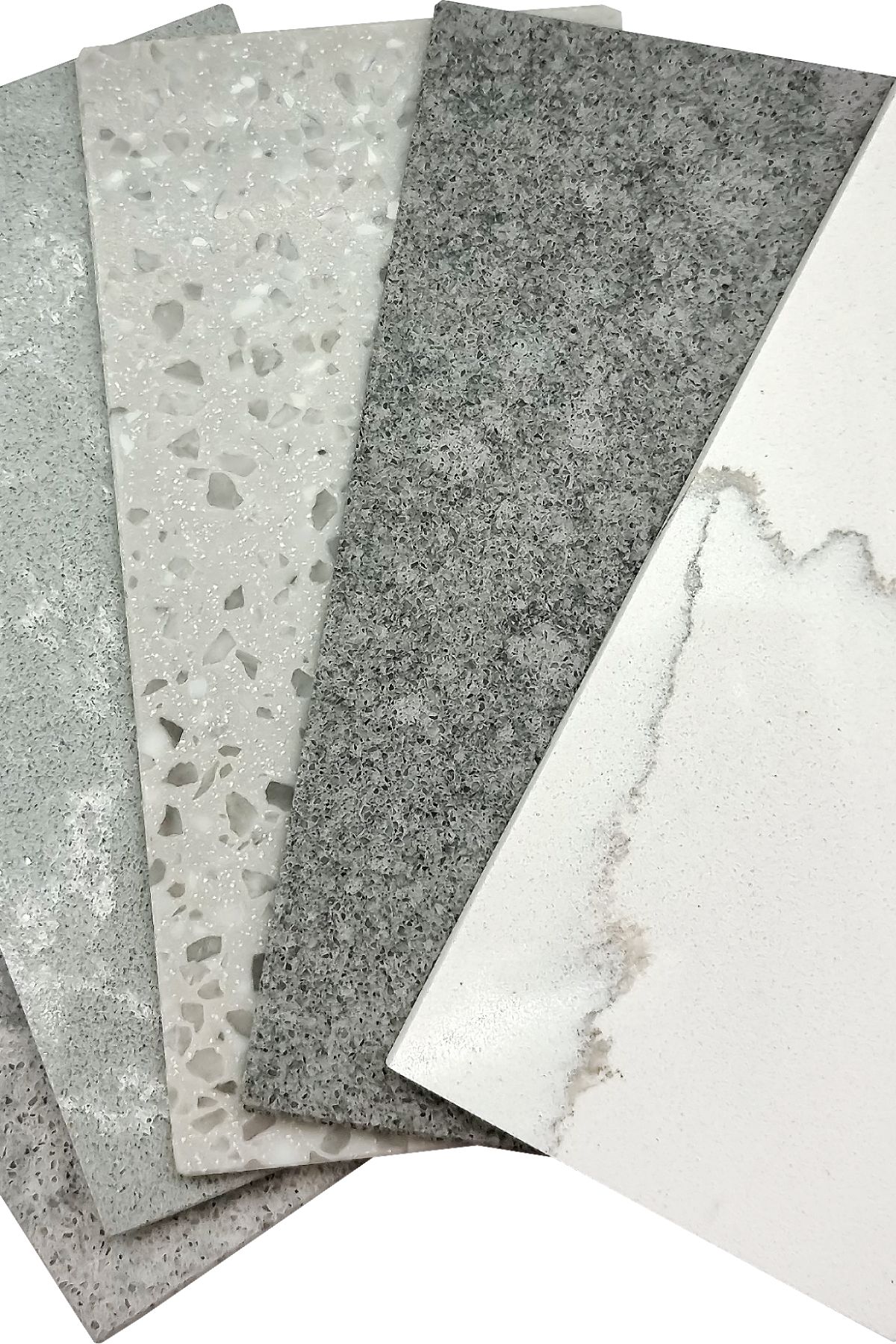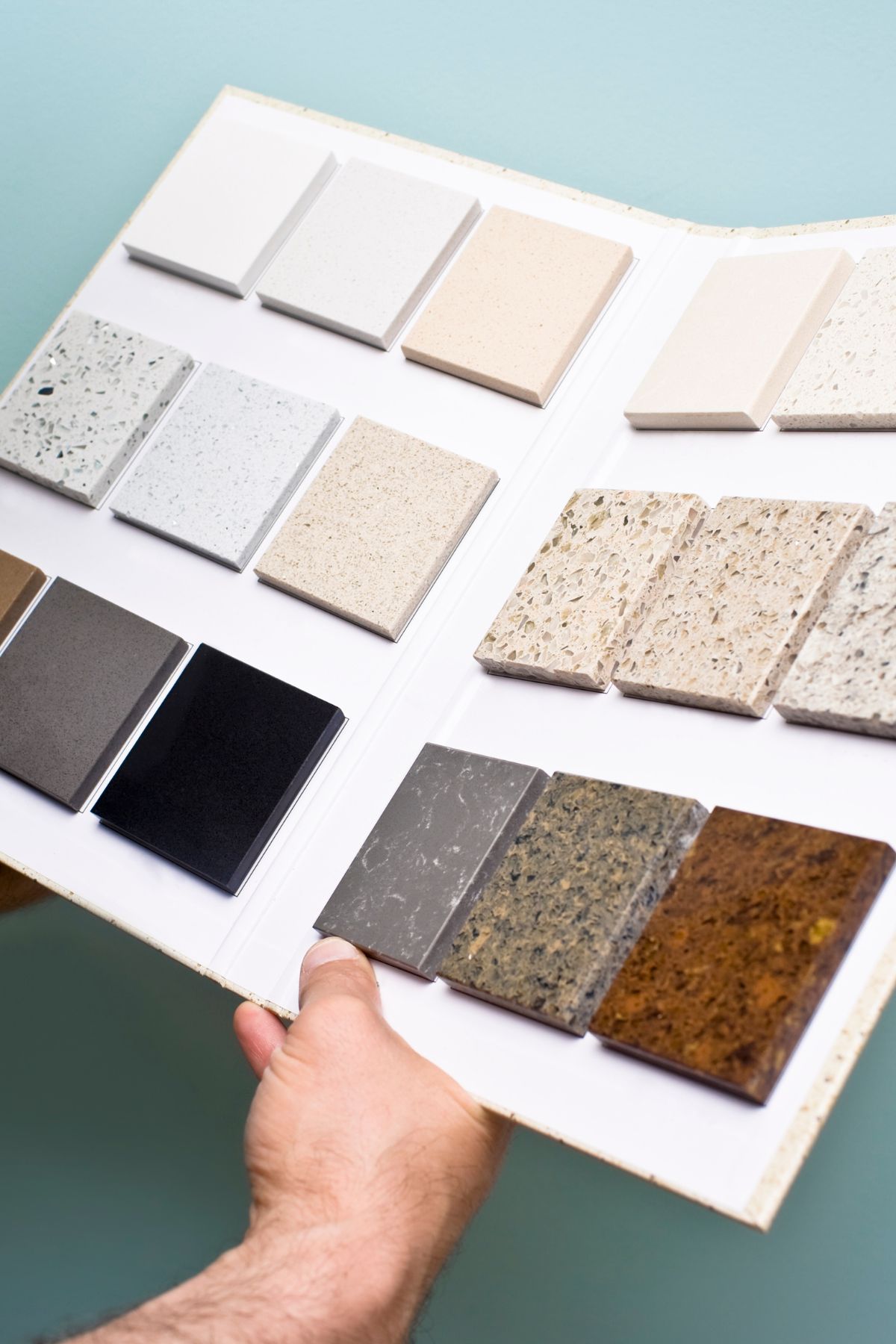A Quartz Weight Calculator is an essential tool for anyone working with quartz slabs—whether you’re a contractor, interior designer, or DIY enthusiast.
Quartz Weight Calculator
It helps estimate the weight of quartz based on its dimensions and density, saving time and reducing errors during planning, transport, and installation.
Quartz is a popular material used in kitchen countertops, bathroom vanities, flooring, and even wall cladding due to its durability, aesthetic appeal, and low maintenance. However, quartz can be extremely heavy, and misjudging its weight can lead to logistical issues, structural problems, or safety hazards. For instance, transporting a full-size slab without knowing its weight could exceed vehicle limits or require additional labor. This is where a Quartz Weight Calculator becomes incredibly useful—it eliminates guesswork and provides accurate results based on standard material science principles.
Whether you’re cutting a custom piece, ordering new slabs, or preparing for delivery and installation, using a Quartz Weight Calculator can streamline your workflow and prevent costly mistakes. It allows you to input dimensions (length, width, and thickness), choose or specify the quartz type (since density varies slightly), and get real-time results in both pounds and kilograms.
This calculator is especially helpful in ensuring your project complies with weight constraints, such as floor load limits or countertop support requirements. It’s also a great resource for consumers trying to evaluate installation feasibility before making a purchase.
By the end of this guide, you’ll understand how quartz weight is calculated, why different types of quartz have slightly different densities, and how to use this tool effectively in both residential and commercial projects.

Why Knowing Quartz Weight Matters
Using a Quartz Weight Calculator is more than a matter of convenience—it’s a necessity for safe and successful quartz installation. Quartz slabs are dense and heavy, and misjudging their weight can lead to structural stress, delivery delays, or even injury during handling.
🏗️ Structural Support & Engineering
Whether you’re installing a countertop on cabinets or placing slabs on upper floors, knowing the precise weight is essential to determine if the underlying structure can support the load. This is especially critical in multi-story buildings, mobile homes, or older properties where structural limits may be tighter.
🚚 Logistics & Transportation
Quartz slabs often exceed 100 pounds even in small sections. A Quartz Weight Calculator helps plan how many people are needed to move a slab or if a lifting aid or machinery is required. It also ensures that delivery trucks are loaded within legal and safe weight limits.
🧰 Installation Safety & Cost Planning
Heavy slabs increase the risk of injury if lifted or handled improperly. Knowing the weight in advance helps teams take precautions with padding, braces, and additional labor. It also allows contractors to plan installation time and quote more accurately, improving client trust and budget transparency.
📐 Design Decisions
Weight considerations can even influence design choices. For example, very thick quartz countertops (like 3 cm slabs) are significantly heavier than 2 cm slabs and might require more robust cabinetry or extra reinforcements. Using a Quartz Weight Calculator lets you weigh those trade-offs—literally.
Ultimately, estimating the weight of quartz accurately ensures that your project proceeds smoothly from design to installation. It can help avoid structural failure, ensure code compliance, and contribute to a safer working environment.
What Affects Quartz Weight?
The accuracy of a Quartz Weight Calculator depends on understanding the core variables that influence the weight of quartz slabs. While quartz may seem like a uniform material, several factors can subtly alter its weight, making a customizable calculator especially valuable.
📏 1. Dimensions: Length × Width × Thickness
The most straightforward factor in calculating weight is the size of the slab. Larger and thicker slabs contain more volume and therefore weigh more. For example, a 2 cm thick slab is roughly 33% lighter than a 3 cm slab of the same surface area.
- Length and width are usually measured in inches or feet.
- Thickness may be measured in centimeters, commonly offered in 1.2 cm, 2 cm, and 3 cm options.
A small difference in thickness can result in substantial changes in weight, particularly in large countertop or flooring projects.
⚖️ 2. Material Density
Density refers to how compact the material is and is typically expressed in pounds per cubic foot (lbs/ft³). Most engineered quartz has a density between 160–170 lbs/ft³, while natural quartzite can range slightly higher. A good Quartz Weight Calculator allows for density customization to reflect the specific type of quartz you’re working with.
- Engineered Quartz: ~165 lbs/ft³
- Quartzite: ~170–175 lbs/ft³
- Colored or Decorative Quartz: ~160 lbs/ft³ (due to varying mineral impurities)
🧪 3. Resin and Additives (for Engineered Quartz)
In engineered quartz, polymer resins are added to bind the natural quartz particles. The proportion of resin can slightly alter the overall density. For example, high-resin content may reduce overall weight slightly compared to pure crystalline quartz.
🌫️ 4. Porosity and Moisture Content
Though quartz is generally non-porous, slight variations in manufacturing or storage conditions (like absorption of ambient moisture) can marginally affect the weight. This is generally negligible but may matter in extremely weight-sensitive applications.
Understanding these variables empowers users to make more accurate calculations using a Quartz Weight Calculator. It also underscores the importance of choosing the right slab for your specific needs, both structurally and aesthetically.

Typical Quartz Densities by Type
One of the most important inputs in a Quartz Weight Calculator is the material density, which directly affects the final weight calculation. While quartz is generally known for its durability and strength, its density can vary based on type, composition, and manufacturing process.
Below is a breakdown of typical quartz types and their associated densities:
📊 Quartz Density Comparison Table
| Quartz Type | Density (lbs/ft³) | Density (kg/m³) | Notes |
|---|---|---|---|
| Standard Engineered Quartz | 165 | ~2643 | Most widely used in countertops and surfaces |
| Light-Colored/Decorative Quartz | 160 | ~2563 | May include more resins or lighter fillers |
| Natural Quartz (Macrocrystalline) | 165 | ~2643 | Dense and uniform, commonly found in decorative slabs |
| Quartzite (Natural Stone) | 170–175 | 2723–2803 | More crystalline and typically harder and heavier |
| Rose Quartz, Amethyst, etc. | 160–165 | 2563–2643 | Variability due to mineral impurities and coloration |
📌 Why It Matters
Using a generic weight value like 165 lbs/ft³ is fine for quick estimates, but if you’re dealing with quartzite or specialty types like rose quartz, using the correct density ensures better accuracy. This is particularly important in commercial projects, where even small miscalculations in slab weight can affect structural safety or cost estimates.
A good Quartz Weight Calculator should allow users to:
- Select from preset density options for common quartz types.
- Input a custom density value if needed.
This flexibility ensures accurate and realistic estimates across a variety of use cases—from custom kitchens to architectural stone cladding.
How to Use the Quartz Weight Calculator
Using a Quartz Weight Calculator is a straightforward process, but understanding how to input the correct values will ensure you get the most accurate weight estimation for your quartz slab. Whether you’re planning a countertop installation, designing custom furniture, or ordering slabs in bulk, this tool simplifies your planning process.
🔧 Step-by-Step Instructions
Step 1: Measure Your Slab Dimensions
Use a measuring tape to determine:
- Length in inches
- Width in inches
- Thickness in centimeters (1.2 cm, 2 cm, and 3 cm are most common)
Be sure your measurements are precise to avoid miscalculations, especially for larger surfaces.
Step 2: Select or Enter Quartz Density
Quartz density affects the weight significantly. Use the dropdown to select from common types:
- Standard Engineered Quartz (165 lbs/ft³)
- Quartzite (170 lbs/ft³)
- Decorative Quartz (160 lbs/ft³)
You can also enter a custom value if your supplier provides a specific density or you’re working with a specialty quartz material.
Step 3: Click “Calculate Weight”
Once you’ve entered all the necessary values, click the “Calculate Weight” button. The tool will:
- Convert your dimensions into cubic feet
- Multiply by the selected density
- Display the result in both pounds (lbs) and kilograms (kg)
This output helps you plan for handling, transport, and structural support with confidence.
💡 Pro Tip:
If you’re comparing slabs of different thicknesses (e.g., 2 cm vs. 3 cm), run each through the calculator to compare how much extra weight you’re adding. Even small increases in thickness can lead to significantly heavier slabs.
The Quartz Weight Calculator is designed to work quickly and accurately, making it a must-have tool for installers, fabricators, designers, and homeowners alike.
Formula Used to Calculate Quartz Weight
Behind every accurate Quartz Weight Calculator is a simple yet powerful mathematical formula that uses basic volume and density principles. Understanding how the calculator works gives you confidence in its results—and allows you to make manual estimates when needed.
🧮 The Quartz Weight Formula
Weight (lbs)=Length (in)×Width (in)×Thickness (cm)×(1/7281)×(1/2.54)×Density (lbs/ft³)
To break it down:
- Convert inches to feet
Length and width in inches are divided by 12 to get feet. - Convert thickness from centimeters to feet
Thickness (cm) is divided by 30.48 (since 1 ft = 30.48 cm). - Calculate Volume in Cubic Feet Volume=Length (ft)×Width (ft)×Thickness (ft)
- Multiply Volume by Quartz Density Weight (lbs)=Volume (ft³)×Density (lbs/ft³)
- Convert Pounds to Kilograms Weight (kg)=Weight (lbs)×0.453592
🔍 Example Calculation
Suppose you have a quartz slab with the following dimensions:
- Length: 60 inches
- Width: 25 inches
- Thickness: 2 cm
- Density: 165 lbs/ft³
Step 1: Convert to feet
- Length = 60 / 12 = 5 ft
- Width = 25 / 12 ≈ 2.08 ft
- Thickness = 2 / 30.48 ≈ 0.0656 ft
Step 2: Calculate Volume 5×2.08×0.0656≈0.682 cu. ft
Step 3: Calculate Weight 0.682×165≈112.5lbs 112.5×0.453592≈51.0kg
✅ The Quartz Weight Calculator automates all of this, but knowing the math behind it ensures you understand how even small measurement changes can impact the final weight.
Common Quartz Slab Sizes and Estimated Weights
One of the most practical uses of a Quartz Weight Calculator is to estimate the weight of standard slab sizes. This is particularly helpful when planning for delivery, lifting equipment, or support structures. While custom cuts vary widely, manufacturers tend to offer slabs in a few industry-standard sizes with consistent thicknesses.
📐 Standard Quartz Slab Dimensions
| Slab Type | Typical Dimensions (inches) | Thickness Options (cm) | Surface Area (ft²) |
|---|---|---|---|
| Small Slab | 55 x 26 | 1.2 / 2 | ~9.9 |
| Standard Slab | 120 x 55 | 2 / 3 | ~45.8 |
| Jumbo Slab | 130 x 65 | 2 / 3 | ~58.6 |
Note: Thicknesses are usually offered in 1.2 cm (thin), 2 cm (standard), and 3 cm (heavy-duty)
⚖️ Estimated Weights by Slab Size and Thickness
(Assuming Quartz Density = 165 lbs/ft³)
| Slab Size | Thickness (cm) | Estimated Weight (lbs) | Estimated Weight (kg) |
|---|---|---|---|
| 55×26 | 2 | ~100 | ~45 |
| 120×55 | 2 | ~460 | ~209 |
| 130×65 | 2 | ~575 | ~261 |
| 120×55 | 3 | ~690 | ~313 |
| 130×65 | 3 | ~860 | ~390 |
These values are approximate but very close to actual weight, assuming standard engineered quartz density. For custom quartz types or unusual dimensions, using the Quartz Weight Calculator will give you exact values tailored to your input.
🛠️ Pro Use Tip:
Installers often use this weight data to:
- Choose between 2 cm and 3 cm slabs depending on cabinetry strength
- Determine whether a two-person lift is sufficient
- Decide if a lifting cart, dolly, or crane is needed on-site

Conclusion
Whether you’re designing a new kitchen, managing a construction project, or simply calculating transportation needs, the Quartz Weight Calculator is an indispensable tool that saves time, reduces error, and improves safety. By entering just a few measurements—length, width, thickness, and density—you can quickly estimate the weight of any quartz slab in both pounds and kilograms.
This tool is especially valuable for professionals and DIYers working with quartz in applications such as countertops, backsplashes, tabletops, and flooring. It removes the guesswork from structural planning, makes delivery logistics smoother, and ensures installations are both secure and compliant with safety standards.
With the flexibility to choose from preset quartz types or enter a custom density, the Quartz Weight Calculator adapts to a wide range of project needs. From lightweight decorative slabs to dense quartzite surfaces, having precise weight data on hand is critical for ensuring success across the board.
As quartz continues to grow in popularity for its aesthetic appeal and resilience, tools like this calculator empower both contractors and consumers to make informed decisions. Bookmark it, use it often, and pair it with sound measurement practices to keep your projects running efficiently and safely.
Frequently Asked Questions (FAQs)
1. How accurate is the Quartz Weight Calculator?
The Quartz Weight Calculator is highly accurate when you input correct dimensions and a realistic quartz density. It uses standard volume and density formulas. Minor variations can occur depending on actual resin content or manufacturer tolerances, especially for engineered quartz.
2. Can I use the calculator for quartzite or natural stone?
Yes, you can. Just select the appropriate density from the preset dropdown or enter a custom value. Quartzite typically has a density of 170–175 lbs/ft³, which is heavier than standard engineered quartz.
3. What’s the average weight of a quartz countertop?
A typical 2 cm thick quartz countertop that’s 120 inches long by 25.5 inches wide weighs around 425–475 lbs, depending on the quartz type. A 3 cm slab of the same size can weigh up to 700 lbs. Use the Quartz Weight Calculator to fine-tune based on your specific measurements.
4. Can I lift a quartz slab by myself?
Generally, no. Even smaller slabs can weigh over 100 lbs. It’s recommended to use a team of two or more people for lifting, or use mechanical aids like suction lifters or carts. Always prioritize safety.
5. Is the calculator suitable for metric inputs?
Yes, thickness can be entered in centimeters. The calculator will handle internal conversions. However, length and width must be input in inches for the default version. A metric-only version can be built if needed.
6. What happens if my quartz has unusual additives or colors?
Special pigments, metallic flecks, or decorative resins can slightly affect density, but these differences are usually minor. For specialty quartz, check the manufacturer’s specs or use the custom density input in the Quartz Weight Calculator.
7. Can I use this calculator for other materials like granite or marble?
Not directly. Those materials have different densities (e.g., granite ~170–180 lbs/ft³). However, if you enter the correct density for the material you’re working with, the same formula applies.
